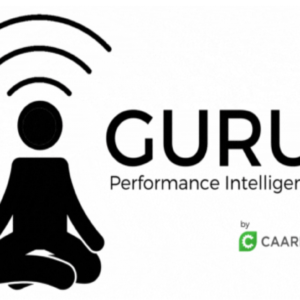Summary: Discover how data-driven, emotionally intelligent tools can revolutionize organizational culture and drive measurable success.
Information Type: Guidebook
The Data-Driven Cultural Transformation Guidebook: Rethinking Traditional Leadership Approaches for Measurable Business Success
I. Introduction: The Myth of Intuition-Based Organizational Change
The traditional approach to organizational transformation often relies heavily on leadership intuition. Leaders are expected to gauge the cultural climate and steer changes based on their experience and gut feelings. However, these methods can fall short, leading to misaligned initiatives and unsuccessful transformations.
The limitations of intuition-based strategies are significant. Without empirical data, leaders may overlook critical issues, leading to decisions that fail to resonate with the broader organization. This gap often results in miscommunication, resistance to change, and ultimately, failed transformation efforts.
In contrast, data-driven, emotionally intelligent strategies harness the power of analytics and human-centric tools to foster alignment and engagement. By leveraging data, leaders can make informed decisions that align with the organization’s core values and goals, ensuring a smoother and more effective transformation process.
II. Deconstructing the Status Quo: Why Traditional Methods Fall Short
Traditional leadership assumptions often rest on the belief that experience and intuition are sufficient for guiding change. However, numerous case studies highlight the pitfalls of this approach. For example, a Fortune 500 company attempted a major cultural shift based solely on executive intuition, only to face significant pushback and declining morale.
The hidden costs of misaligned culture and roles are substantial. Misalignment can lead to decreased productivity, high turnover rates, and a lack of cohesive direction. These issues underscore the need for a more structured, evidence-based approach to cultural transformation.
“Case studies show that intuition-based transformations frequently fail, leading to high costs and misaligned teams.”
III. The Data-Driven Advantage: Unlocking Measurable Success
Analytics play a crucial role in cultural transformation. By analyzing data from employee surveys, performance metrics, and other key indicators, leaders can identify patterns and areas for improvement. This approach provides a clear picture of the organization’s current state and highlights areas needing attention.
“Emotionally intelligent tools facilitate role alignment by considering individual strengths and preferences, leading to a more engaged workforce.”
Linking cultural changes to business outcomes is essential. For instance, a tech company that implemented data-driven strategies saw a 20% increase in employee engagement and a 15% boost in productivity within the first year. These tangible results demonstrate the effectiveness of combining data analytics with emotionally intelligent tools.
IV. Implementing a Data-Driven Cultural Transformation Strategy
Assessing your current organizational culture is the first step. Utilize surveys, focus groups, and performance data to gain a comprehensive understanding of the existing culture. This assessment will serve as the foundation for developing targeted strategies.
Identifying key metrics for cultural and role alignment is crucial. Metrics such as employee engagement scores, turnover rates, and productivity levels provide valuable insights into the effectiveness of cultural initiatives.
Developing emotionally intelligent leadership practices involves training leaders to use data effectively while fostering an empathetic, supportive environment. Leaders should be equipped with the skills to interpret data and use it to make informed, human-centric decisions.
Creating a roadmap for change ensures that the transformation process is structured and goal-oriented. This roadmap should outline specific actions, timelines, and milestones, providing a clear path forward.
Overcoming resistance and ensuring buy-in requires transparent communication and active involvement from all levels of the organization. Leaders should engage employees in the transformation process, addressing concerns and highlighting the benefits of the new approach.
“A structured, data-driven roadmap for change ensures alignment and measurable success.”
V. Conclusion: Embracing the Future of Organizational Transformation
In summary, the limitations of intuition-based organizational change highlight the need for data-driven, emotionally intelligent strategies. By leveraging analytics and human-centric tools, leaders can achieve measurable success and foster a more engaged, productive workforce.
The long-term benefits of data-driven cultural alignment are clear. Organizations that embrace this approach see improved performance, higher employee satisfaction, and a more cohesive culture.
Take the first step towards transformative change by adopting data-driven strategies and emotionally intelligent tools. Your organization’s future success depends on it.
Follow me for more insights on data-driven transformation and leadership strategies. Comment with your thoughts and experiences, and share this article with your network to spread the knowledge.
#Leadership #DataDriven #CulturalTransformation #EmotionalIntelligence #BusinessSuccess


